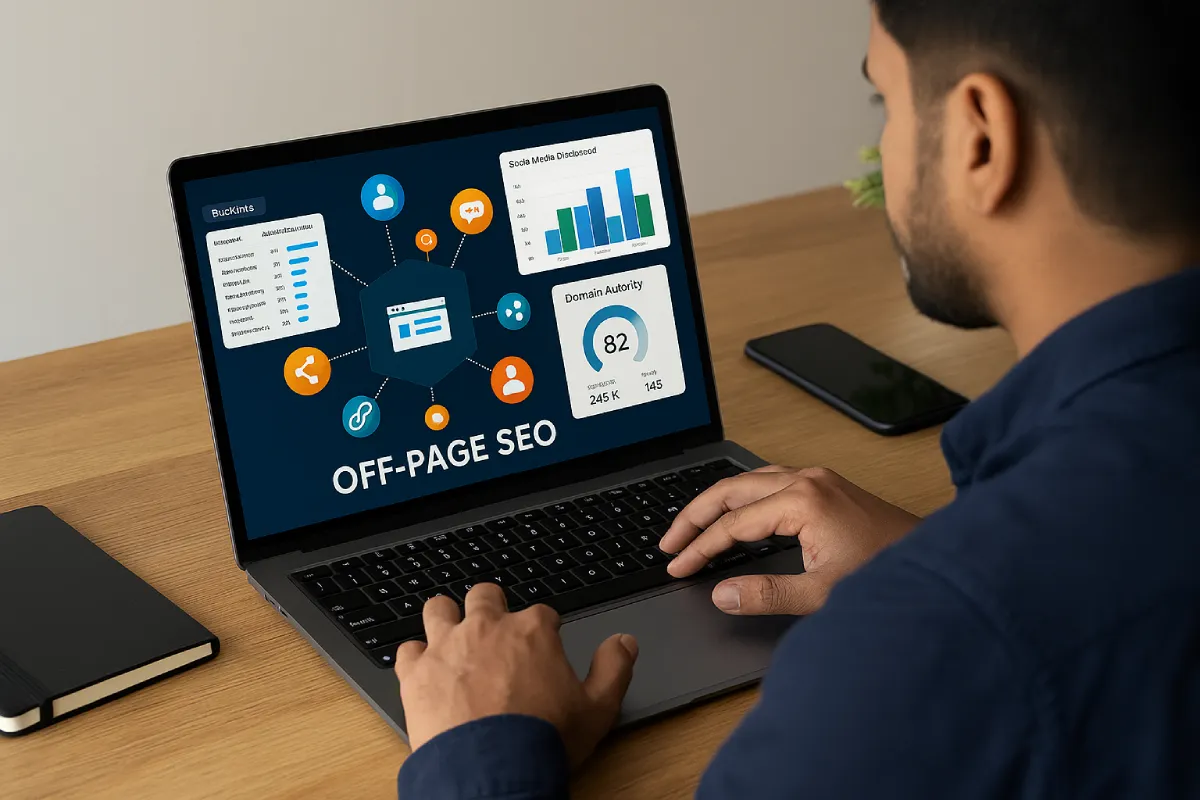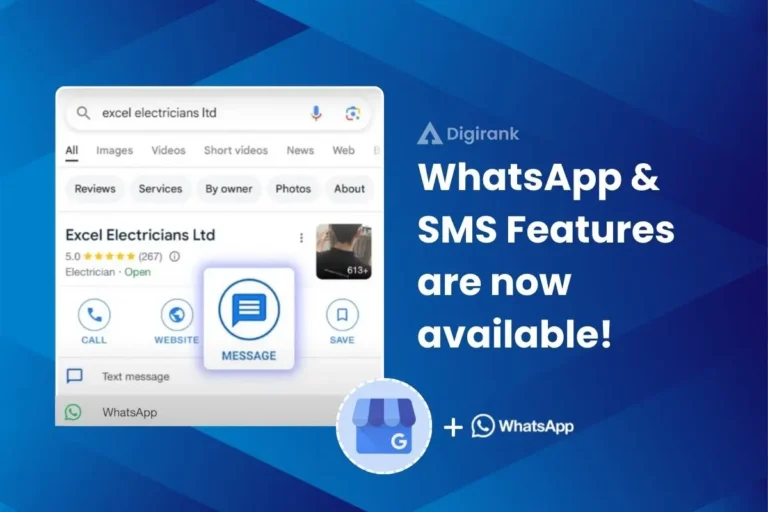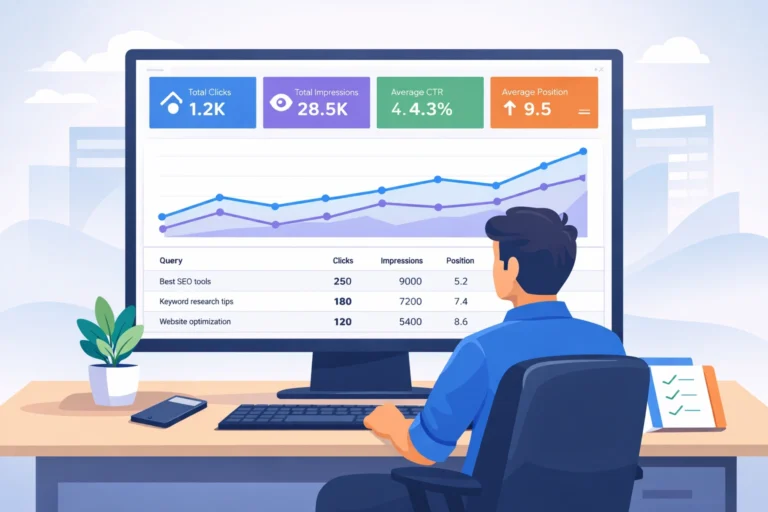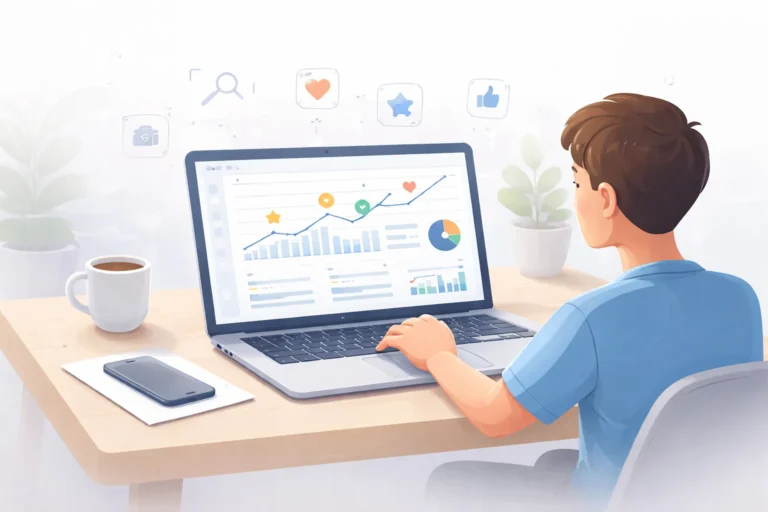What Is Off-Page SEO: Strategies to Boost Rankings and Build Authority
When people talk about SEO, they often focus on optimizing website content, keywords, and structure — but that’s only half the story. There are different types of SEO, including on-page, off-page, and technical SEO, each playing a crucial role in improving your website’s visibility and performance. The other half, known as off-page SEO, focuses on building your website’s credibility and authority across the internet.
In simple terms, what is off-page SEO? It refers to all the activities you perform outside your website to improve its search engine ranking. These external signals — from backlinks and social mentions to your online reputation — signal to search engines that your website is trustworthy and authoritative.
Off-page SEO acts as a “vote of confidence” from other websites and platforms, signaling to Google that your content is valuable, credible, and worth ranking higher.
Understanding What Is Off-Page SEO
Off-page SEO focuses on boosting your website’s reputation and domain authority through actions that happen beyond your site. Unlike on-page SEO, which deals with content and structure, off-page SEO is about how others perceive your brand across the web.
When you earn links, mentions, or shares from credible sources, it strengthens your domain authority — a major ranking factor in Google’s algorithm.
Key Benefits of Off-Page SEO:
- Increases website authority and trust.
- Drives referral traffic from other websites.
- Improves search engine visibility.
- Builds brand awareness and reputation.
Off-Page SEO Techniques and Strategies
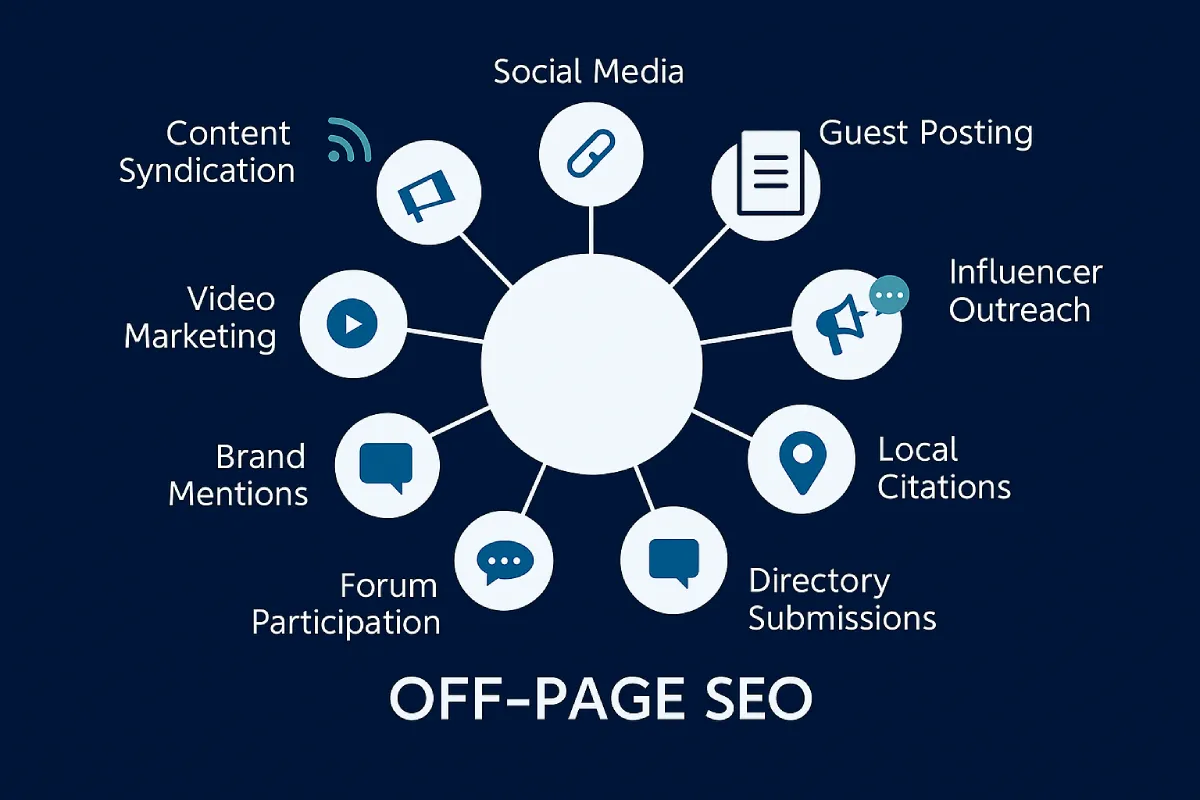
1. Link Building: The Foundation of Off-Page SEO
One of the most crucial off-page SEO techniques is link building. Backlinks act like votes of confidence from other websites. The more high-quality backlinks you earn, the more trustworthy your site appears to search engines.
Best Practices:
- Focus on quality over quantity — links from reputable, relevant sites matter most.
- Earn backlinks naturally through valuable content.
- Avoid spammy or paid links — they can harm your rankings.
Effective Tactics:
- Guest Posting: Write high-quality articles for authoritative websites in your industry.
- Broken Link Building: Find and replace broken links on other websites with your relevant content.
- Digital PR: Create shareable resources or research that attract links organically.
2. Building Domain Authority
Your domain authority (DA) reflects how trustworthy and strong your website is in search engine eyes. It’s influenced by backlinks, brand reputation, and content consistency.
Tips to Improve Domain Authority:
- Consistently earn links from credible sites.
- Remove or disavow toxic backlinks.
- Keep your site technically optimized.
- Build long-term relationships with industry influencers.
Use tools like Moz, Ahrefs, or SEMrush to monitor your domain authority and backlink profile regularly.
3. Leveraging Social Signals
Search engines consider social signals (likes, shares, comments, and mentions) as indirect ranking factors. They indicate content popularity and brand trust.
How to Boost Social Signals:
- Share content regularly on platforms like LinkedIn, X (Twitter), Instagram, and Facebook.
- Engage with followers by replying to comments and participating in discussions.
- Encourage social sharing through contests or user-generated content.
The more your content circulates online, the more visibility and potential backlinks it gains.
4. Brand Mentions and Online Reputation
Even without direct backlinks, brand mentions can boost your credibility. When people or media outlets talk about your brand online, Google takes it as a sign of relevance and authority.
How to Increase Brand Mentions:
- Participate in podcasts, interviews, or industry discussions.
- Collaborate with bloggers and niche influencers.
- Monitor your brand using tools like Google Alerts and Mention.
Consistently maintaining a positive reputation online enhances trust and organic visibility.
5. Guest Posting and Content Outreach
Guest posting remains one of the most effective off-page SEO techniques for earning backlinks and authority. By contributing insightful content to reputable websites, you not only build links but also establish expertise.
Best Practices:
- Target niche-relevant, high-authority sites.
- Provide unique, actionable, and well-researched content.
- Avoid generic outreach — personalize your communication.
Combine guest posting with content outreach, where you promote your most valuable resources (like guides, research, or infographics) to earn organic mentions and backlinks.
6. Local SEO and Citations
If you’re a local business, off-page optimization includes local SEO tactics like building citations and managing online reviews.
Actionable Steps:
- Ensure your NAP (Name, Address, Phone number) is consistent across directories.
- Get listed on platforms like Google Business Profile, IndiaMART, Sulekha, and Justdial.
- Encourage satisfied customers to leave reviews.
Local citations improve trust and help search engines verify your business’s legitimacy.
Advanced Off-Page SEO Techniques
- Participate in Forums and Communities: Engage in platforms like Quora, Reddit, and niche forums to build authority.
- Influencer Marketing: Partner with influencers to expand reach and brand recognition.
- Content Syndication: Share your best-performing content across reputable networks.
- Podcast Guesting: Join podcasts to share expertise and gain exposure.
These strategies, when done consistently, create a strong web presence that drives traffic and authority.
Common Off-Page SEO Mistakes to Avoid
- Buying backlinks or participating in link schemes.
- Ignoring social media engagement.
- Using low-quality directories.
- Failing to monitor backlink quality.
- Over-optimizing anchor text.
Avoiding these mistakes ensures sustainable growth and prevents Google penalties
FAQs About Off-Page SEO
1. What is off-page SEO?
Off-page SEO refers to all optimization activities performed outside your website to improve its authority, trust, and search engine rankings. It includes link building, brand mentions, and social signals.
2. Why is off-page SEO important?
Off-page SEO is vital because it helps search engines determine how authoritative and trustworthy your website is compared to competitors.
3. How do backlinks affect SEO?
Backlinks serve as votes of confidence from other sites. High-quality backlinks from trusted domains improve your domain authority and ranking potential.
4. What are the best off-page SEO techniques?
The most effective techniques include link building, guest posting, social media marketing, and earning brand mentions.
5. How can I check my backlink profile?
You can use tools like Ahrefs, SEMrush, or Moz to analyze backlinks, identify toxic links, and track referring domains.
Conclusion: Building Authority Through Off-Page SEO
Now that you understand what is off-page SEO, it’s clear that earning trust and authority goes far beyond your website. By implementing techniques like link building, guest posting, and leveraging social signals and brand mentions, you can create a powerful digital footprint.
Consistency, quality, and relationship-building are key. Focus on earning genuine backlinks and mentions, and over time, your domain authority and rankings will grow naturally.
Ready to elevate your website’s presence? Partner with Digirank, your trusted SEO experts, to build a strong off-page SEO strategy that drives measurable results. Contact Digirank to get started today!

